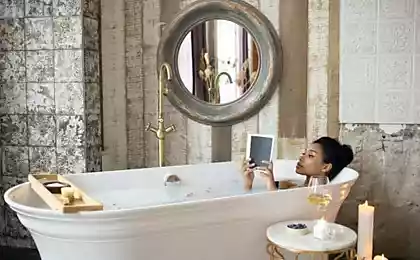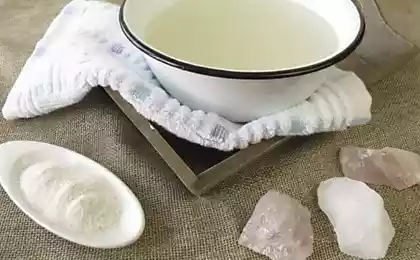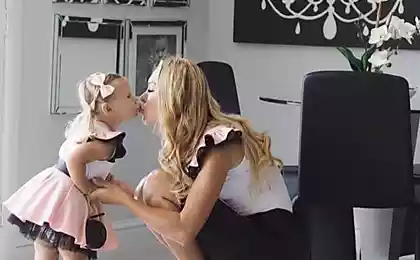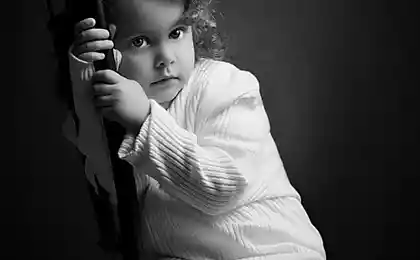211
Psychologists figured out when to stop taking a bath with children
The bond between the child and the parent runs through life, but the most important phase is certainly the initial phase. When young children are still forming the image of a father or mother, they will readily accept all the necessary and new information. For example, when baby With a parent, they kind of reboot, because they are in new conditions for themselves.
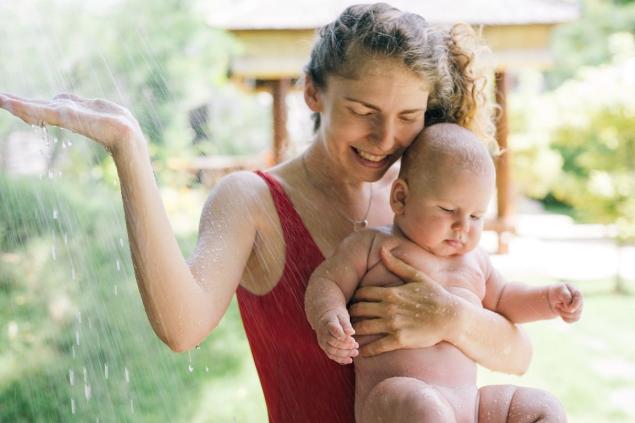
Thus, mom and dad become even closer to them, because there is no one around, and the conditions around are very unusual and it is extremely difficult to navigate them. So yes, young parents, take note: bathing with children will help you to bond spiritually. There is a simple and understandable explanation for this.
First, it should be mentioned that for a child everything new is perceived really acutely. He will also have an appropriate reaction. Screaming, crying and even screeching in negative aspects will be replaced by a happy laugh and the most sincere smile. And it's expensive. So, if you try to make the right temperature in the bath from the very beginning, the process itself will go easier.
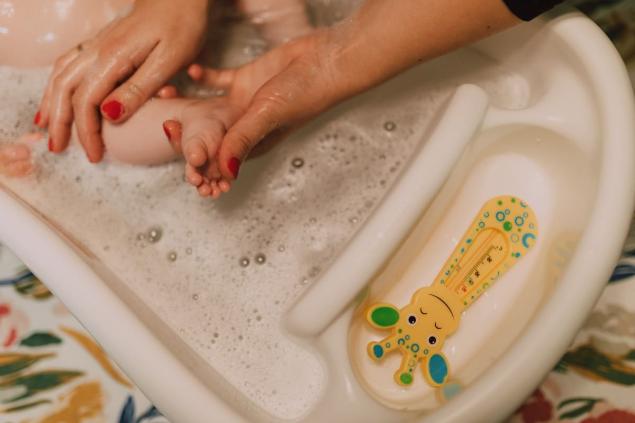
Peels Do not bother with salts or aromatic foams. The kid doesn't need it. It is better to take your favorite toy, if it is made of a material friendly to moisture, and give it to the child. Thus, he will be given the correct setting for relaxation. And immersion in warm, not burning, water will pass easily and painlessly.
Secondly, do not forbid the child to splash in the water. He is not an adult, and such limitations will be incomprehensible to him. It is easier to wash the bath in a hurry than to force the baby to behave unnaturally. Let him explore a new space, enjoy and play. This is the right reaction, besides it provokes the burning of a large amount of energy. This means that the baby will sleep well after water treatments.
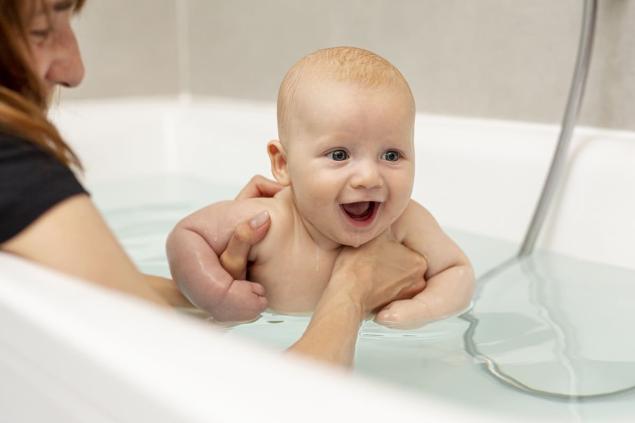
A smart parent will make sure to come up with several play scenarios in which he and his child can take part together. This would make the bond between them stronger, and the child would subconsciously be able to assume the leadership role of his father or mother. This is not to mention the banal development of motor skills of the hands and feet. Yes, children know that in order to stay on the water, you need to actively flounder. Don't teach them that.
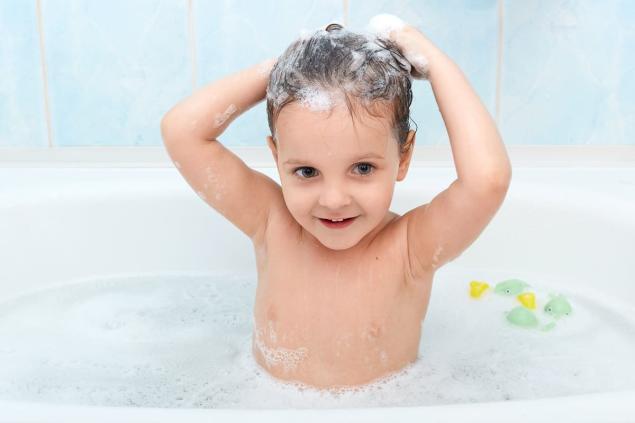
At some point, the child may get water in the eyes or just get tired. One way or another, he will have to communicate with the parent to let him know about his problem. If the child already knows a few words, it will be a good impetus to develop his vocabulary. Or he will try to explain it in a different way. In any case, you need to be attentive to your child.
Immersion in water with your child tells him that a big and strong parent is nearby. And that, if anything, it will protect the child from danger. This way you get closer, you get more trusting emotions, and moreover, this positive experience works for the future. With age, the child will trust the parent who bathed him at an early age. That's what statistics tell us.
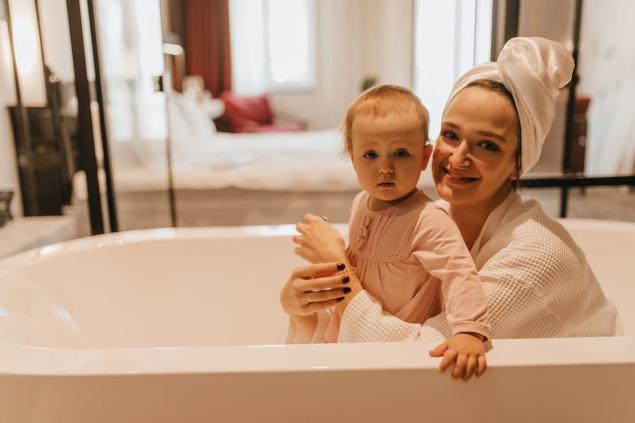
Children bathe in the bathtub and perhaps the laziest argument: it's just nice. Warm water, your own child splashing around, pleasant emotions. Just what it takes to unload your head and relax before tomorrow. Naturally, you need to watch the child carefully, but you should not overdo it either. A parent must become a protector, a person in control, a friend. Not a warden at all.
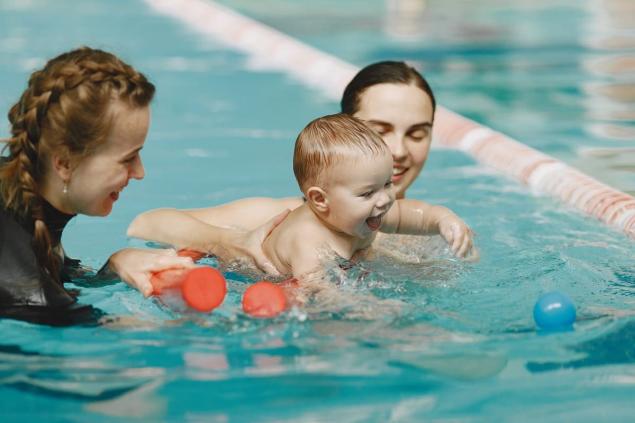
In conclusion, bathing parents and young children together is not only a physical process of hygiene, but also a powerful means of strengthening mutual understanding and connections between them. It creates intimacy and tenderness, promotes play and interaction, develops speech and communication, builds trust and security, and creates a special time for family communication. Shared bathing is a valuable ritual that can be incorporated into a family’s daily life to strengthen emotional bonds and make interaction with children deeper and more meaningful.

Thus, mom and dad become even closer to them, because there is no one around, and the conditions around are very unusual and it is extremely difficult to navigate them. So yes, young parents, take note: bathing with children will help you to bond spiritually. There is a simple and understandable explanation for this.
First, it should be mentioned that for a child everything new is perceived really acutely. He will also have an appropriate reaction. Screaming, crying and even screeching in negative aspects will be replaced by a happy laugh and the most sincere smile. And it's expensive. So, if you try to make the right temperature in the bath from the very beginning, the process itself will go easier.

Peels Do not bother with salts or aromatic foams. The kid doesn't need it. It is better to take your favorite toy, if it is made of a material friendly to moisture, and give it to the child. Thus, he will be given the correct setting for relaxation. And immersion in warm, not burning, water will pass easily and painlessly.
Secondly, do not forbid the child to splash in the water. He is not an adult, and such limitations will be incomprehensible to him. It is easier to wash the bath in a hurry than to force the baby to behave unnaturally. Let him explore a new space, enjoy and play. This is the right reaction, besides it provokes the burning of a large amount of energy. This means that the baby will sleep well after water treatments.

A smart parent will make sure to come up with several play scenarios in which he and his child can take part together. This would make the bond between them stronger, and the child would subconsciously be able to assume the leadership role of his father or mother. This is not to mention the banal development of motor skills of the hands and feet. Yes, children know that in order to stay on the water, you need to actively flounder. Don't teach them that.

At some point, the child may get water in the eyes or just get tired. One way or another, he will have to communicate with the parent to let him know about his problem. If the child already knows a few words, it will be a good impetus to develop his vocabulary. Or he will try to explain it in a different way. In any case, you need to be attentive to your child.
Immersion in water with your child tells him that a big and strong parent is nearby. And that, if anything, it will protect the child from danger. This way you get closer, you get more trusting emotions, and moreover, this positive experience works for the future. With age, the child will trust the parent who bathed him at an early age. That's what statistics tell us.

Children bathe in the bathtub and perhaps the laziest argument: it's just nice. Warm water, your own child splashing around, pleasant emotions. Just what it takes to unload your head and relax before tomorrow. Naturally, you need to watch the child carefully, but you should not overdo it either. A parent must become a protector, a person in control, a friend. Not a warden at all.

In conclusion, bathing parents and young children together is not only a physical process of hygiene, but also a powerful means of strengthening mutual understanding and connections between them. It creates intimacy and tenderness, promotes play and interaction, develops speech and communication, builds trust and security, and creates a special time for family communication. Shared bathing is a valuable ritual that can be incorporated into a family’s daily life to strengthen emotional bonds and make interaction with children deeper and more meaningful.
Returned home with a bunch of gifts, but the delivery service lost the suitcase, which had hotels for her son and daughter-in-law.
A couple of hours before the holiday dinner, my husband called and gave me the news that made my legs shatter.


